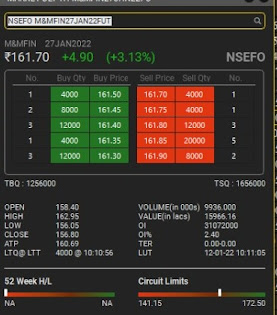When most
of the world was reminiscing the bittersweet moments of 2021 and anticipating
the arrival of 2022, Dinesh M, a Chennai-based stock trader, was wondering how
he would be able to pay a penalty of ₹12 lakh because of SEBI’s new rules for
options.
For
Dinesh M, the New Year started off with him making a YouTube video begging for
crowd funding through a story that demonstrates how vulnerable retail traders
suddenly are in the Indian stock market.
Dr.
Sanjay, another victim of the same rule, saw ₹35 lakh being wiped out from his
account because of a price difference of 35 paise.
Shweta,
who started trading to overcome depression, experienced another level of stress
induced due to misfiring option trade in the backdrop of SEBI’s new rules that
she was never informed about.
There are
countless stories of retail traders dealing in options who are facing financial
crisis, emotional blow, and havoc in their family life due to new rules
introduced by Securities and Exchange Board of India (SEBI) on October 16 that
came to a head with respect to a Hindalco options trade on the December 30
expiry.
As per
new rules, introduced from November expiry, if Spot price of a stock closes
below a Strike price (means In The Money for Put holders), then a trader
holding Put options of that stock either needs to square off the positions
before expiry or provide the shares. New rules meant option has to be settled
by delivery. Thus, anyone holding In the Money (ITM) option will receive/give
delivery of shares depending on whether one is holding Call or Put options.
For the
uninitiated, put option means the trader is expecting price to go down from
Spot price while Call option means a trader is expecting the stock price to
move up from Spot price (current price). As per theory, buying option has a
limited liability where a trader's loss is restricted to the premium paid while
selling option has unlimited liability. But due to the new rules, even a buyer
of option has to bear unlimited liability in case she could not square off
positions before expiry and option becomes an ITM.
Over a
dozen traders who lost a big fortune and are trading through different broking
Firms like Zerodha, ICICI Direct, Profitmart, and Upstox. None of them were
aware about changes in rules where delivery of shares for ITM trades is made
mandatory. Not single retail traders was informed by their broker about the
change in SEBI’s rules, nor were they given any warning before they came to
face the liability that they now find hard to handle.

